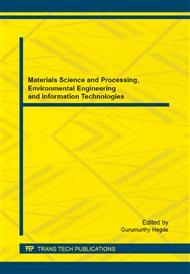p.136
p.143
p.147
p.151
p.155
p.159
p.163
p.167
p.172
Research on Carbonation of Recycled Aggregate Concrete Using Different Recycled Concrete Aggregates
Abstract:
Experimental research on carbonation resistance of recycled aggregate concrete was conducted. Two kinds of recycled aggregates were considered, which were from road waste concrete blocks and waste concrete specimens in lab. The test results showed that the carbonation depth of RAC using the aggregates above increased by 11%, 17% at 28d compared with ordinary concrete. On the earning data of tests, the relationship between aggregate replacement rate and carbonation depth could be accounted as cubic parabola curve.
Info:
Periodical:
Pages:
155-158
DOI:
Citation:
Online since:
October 2014
Authors:
Price:
Сopyright:
© 2014 Trans Tech Publications Ltd. All Rights Reserved
Share:
Citation:


